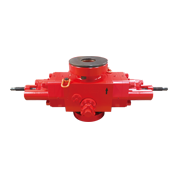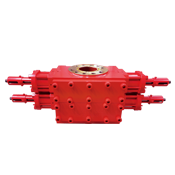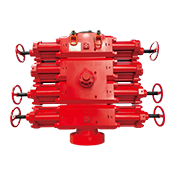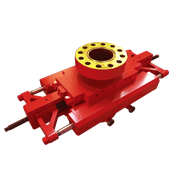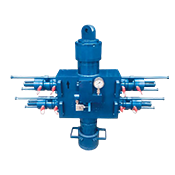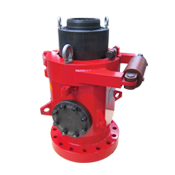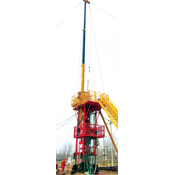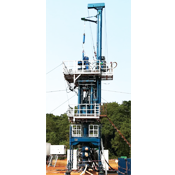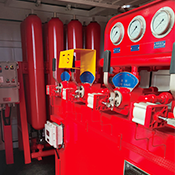Effective Training Strategies for Using Durable RAM Blowout Preventers in Safety Operations
2025-04-09
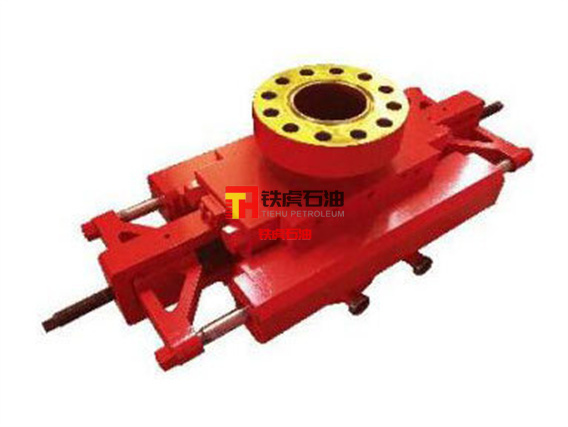
How to Train Your Team on Using Durable RAM Blowout Preventers Effectively
Introduction to RAM Blowout Preventers
In the oil and gas industry, the integrity of equipment is paramount to ensure safety and prevent catastrophic failures. Durable RAM Blowout Preventers (BOPs) are crucial devices designed to contain pressure and prevent blowouts during drilling and production operations. Training your team effectively on using these devices can significantly reduce risks and enhance operational efficiency. This article covers detailed strategies and practices to train your team on RAM BOPs, ensuring they understand their functionality, maintenance, and emergency protocols.
Understanding RAM Blowout Preventers
What Are RAM Blowout Preventers?
RAM Blowout Preventers are hydraulic devices installed on wellheads to control well pressure. They operate by creating a seal around the drill pipe or by blocking the wellbore entirely, thus preventing uncontrolled releases of oil or gas. Understanding their mechanics is vital for any team working in drilling operations.
Types of RAM Blowout Preventers
There are several types of RAM BOPs, including:
- **Pipe RAMs**: Designed to seal around the drill pipe.
- **Blind RAMs**: Used to seal the wellbore when there’s no pipe present.
- **Shear RAMs**: Capable of cutting through the drill pipe and sealing the well simultaneously.
Each type serves a specific purpose and requires different handling techniques, making it crucial for team members to understand their differences.
Training Objectives for Effective RAM BOP Usage
When planning training sessions, it’s essential to set clear objectives. Consider the following goals:
Comprehensive Understanding of Equipment
Team members should gain a thorough understanding of how RAM BOPs function, including their components and operation principles. This knowledge forms the foundation for competent usage.
Familiarity with Safety Procedures
Safety is of utmost importance in the industry. Training should emphasize emergency response protocols and safety measures associated with the operation of RAM BOPs.
Hands-On Technical Skills
Practical training is essential. Team members should engage in simulation drills that provide real-world scenarios, allowing them to practice using RAM BOPs under controlled conditions.
Creating an Effective Training Program
Step 1: Assess Current Knowledge and Skills
Before launching into training, assess your team’s current knowledge regarding RAM BOP usage. This can be done through surveys or informal discussions. Understanding their baseline skills will help tailor the training program to meet their needs.
Step 2: Develop a Structured Curriculum
A well-structured curriculum is essential for effective training. Include the following components:
- **Theoretical Knowledge**: Cover basic principles, types of RAM BOPs, and their operational importance.
- **Safety Protocols**: Detailed procedures for safe operation, maintenance checks, and emergency responses.
- **Practical Exercises**: Hands-on sessions where team members can familiarize themselves with the equipment.
Step 3: Utilize Experienced Instructors
Engaging experienced instructors is crucial. They should possess practical experience with RAM BOPs and be able to share insights and best practices. Their expertise can inspire confidence among trainees and enhance the learning experience.
Step 4: Incorporate Simulation and Role-Playing
Training should include simulation exercises that mimic real-life situations. Role-playing scenarios can help team members respond to emergencies effectively, building their confidence and competence.
Step 5: Continuous Assessment and Feedback
Regular assessments during the training process can help gauge team progress. Provide constructive feedback and adjust training methods where necessary to ensure all team members achieve proficiency.
Maintenance and Inspection Training
Importance of Regular Maintenance
Regular maintenance of RAM BOPs is essential to ensure they function correctly when needed. A well-maintained device can mean the difference between a controlled operation and a catastrophic blowout.
Key Maintenance Practices
Team members should be trained on the following maintenance practices:
- **Routine Inspections**: Learning how to inspect RAM BOPs for signs of wear, corrosion, or damage.
- **Lubrication**: Understanding the importance of proper lubrication for moving parts.
- **Record Keeping**: Keeping accurate records of maintenance activities to ensure compliance and operational readiness.
Emergency Response Protocols
Understanding Blowout Scenarios
Training sessions should include discussions on potential blowout scenarios. Understanding what can lead to a blowout is vital for incident prevention.
Emergency Procedures and Drills
Develop and routinely practice emergency response procedures. This includes:
- **Evacuation Plans**: Ensuring all team members know the nearest exits and safe zones.
- **Communication Protocols**: Establishing clear lines of communication during emergencies.
- **Equipment Handling**: Properly using RAM BOPs in emergency situations to regain control over the well.
Enhancing Team Confidence and Competence
Building a Safety Culture
Instilling a culture of safety within the team is crucial. Encourage open discussions about safety concerns and empower team members to voice their opinions on operational practices.
Incentivizing Training Participation
Consider implementing incentives for team members who actively engage in training programs. Recognition and rewards can motivate participation and foster a sense of responsibility toward safety.
Technological Integration in Training
Utilizing Virtual Reality (VR) and Augmented Reality (AR)
Incorporating VR and AR technologies can enhance the training experience. They provide immersive learning environments, allowing team members to practice their skills in a risk-free setting.
Online Training Modules
Consider developing online training modules for continuous learning. This allows team members to revisit training materials at their convenience, reinforcing their knowledge and skills.
Measuring Training Effectiveness
Post-Training Assessments
Implement assessments following the training program to evaluate knowledge retention and skill application. This helps identify areas where additional training may be necessary.
Feedback from Participants
Gather feedback from participants regarding the training program. Their insights can help refine future training sessions to ensure they are effective and engaging.
FAQs About Training on RAM Blowout Preventers
1. How often should my team undergo RAM BOP training?
Training should be conducted regularly, ideally annually or biannually, with refreshers after any significant operational changes.
2. What qualifications should trainers have for RAM BOP training?
Trainers should possess extensive experience with RAM BOPs, ideally with certifications in safety and equipment operation.
3. Are there any specific regulations regarding RAM BOP training?
Yes, regulations vary by region and industry, so it’s crucial to stay informed about local guidelines and ensure training meets compliance standards.
4. Can simulation training effectively replace hands-on training?
While simulations are valuable, they should complement hands-on training rather than replace it. Practical experience is essential for gaining confidence.
5. What resources are available for developing a training program?
Numerous industry organizations offer training materials, guidelines, and support for developing effective training programs.
Conclusion
Effectively training your team on using durable RAM Blowout Preventers is vital for ensuring safety and operational efficiency in high-pressure environments. By creating a comprehensive training program that includes theoretical knowledge, hands-on practice, and robust emergency response training, you can empower your team to handle BOPs with confidence. Regular assessments and continuous learning will further enhance their skills, ensuring that your operations remain safe and effective. Prioritize safety, invest in training, and watch your team thrive in demanding conditions.
PREVIOUS:
Related News
Contact Us
Mailbox:
tiehu@tiehupetro.com
Telephone:
86-317-2616808
Address:
Yanling Industrial Zone, Renqiu City, Cangzhou City, Hebei Province, China

